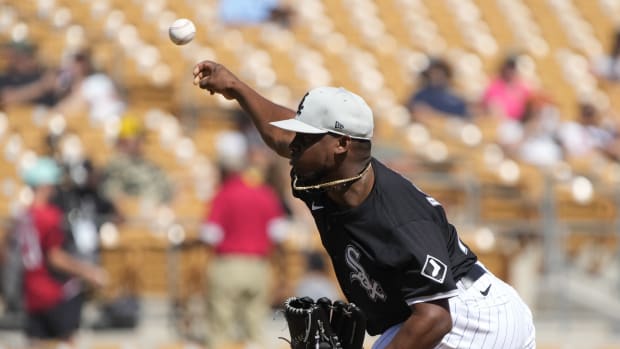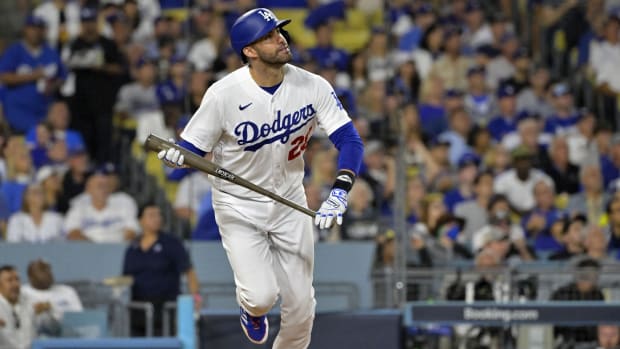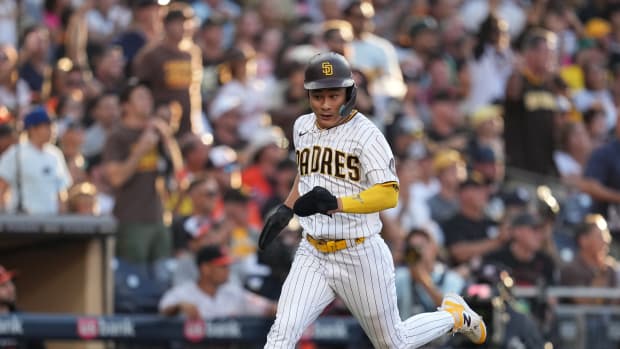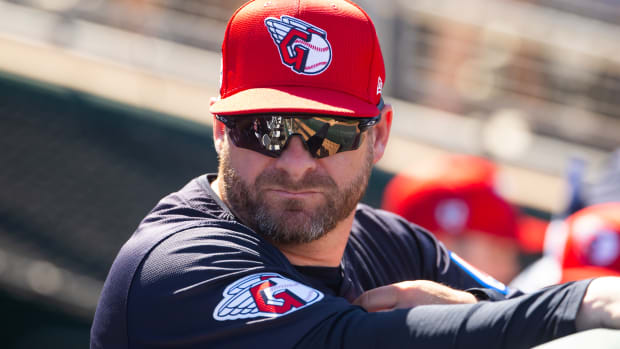To Upset the Dodgers, the Nationals Must Continue Being Unconventional
LOS ANGELES — The Dodgers spent the first five innings of Game 2 of the NLDS trying not to get no-hit by Nationals starter Stephen Strasburg. Then their night got worse.
L.A.’s offensive game plan heading into the series was simple: Get to the bullpen. That’s a sound strategy when you're facing the worst relief corps to ever reach the postseason. So on a night when Strasburg dominated, the Dodgers had to start rooting for long at bats. They finally knocked him out of the game after six sparkling frames and weathered one from erstwhile closer Sean Doolittle, only to learn that their reward was an inning of supposed Game 3 starter Max Scherzer.
“We weren’t expecting that,” said Dodgers manager Dave Roberts, after the Nationals won 4–2 to even the series at one game apiece.
Neither were some of the Nationals. Shortstop Trea Turner had heard rumors that Scherzer might be available, but he had forgotten about them by the time he saw the righty jogging to the mound, different-colored eyes gleaming. Third baseman Anthony Rendon worried. Isn’t that guy supposed to start Game 3?
If Washington is to win this series, this is how it will happen. The Dodgers are the more talented team, so the Nationals must be the more creative one.
Manager Dave Martínez had begun the process of preparing for this game with another gutsy move: turning to Strasburg after he had thrown 34 pitches in relief in the Nats’ wild card game win on Tuesday. Strasburg had been the club’s best pitcher in the second half, but he had never started a game on short rest. Still, after the team landed in L.A. for a pre-series workout, Martínez asked Strasburg how he felt.
“I would love for you to go Game 2, but if you think you need your five days, I get it,” Martínez said. “We can push it back.”
The next morning, Strasburg sought out pitching coach Paul Menhart. “I want the ball,” Strasburg said. “I’m ready to pitch. I feel great.”
Martínez had a similar conversation with Scherzer before Game 2. Normally two days before a start he would throw a bullpen session; the team held him back, just in case. He got the call in the seventh, then charged through the door to begin the eighth. He fired 99-m.p.h. four-seam fastballs and 91-m.p.h. sliders that traveled through the same tunnel until the instant they reached the hitter. (He usually averages 95 m.p.h. and 86 m.p.h., respectively.) He threw 14 pitches, 11 for strikes, and punched out all three men he saw.
“That worked out good,” Martínez said.
Daniel Hudson, probably the Nationals’ most reliable true reliever at this point, nearly gave the whole thing away when he loaded the bases in the ninth inning. But he struck out Corey Seager swinging to make the series a best-of-three.
The question now is how long the Nationals can sustain this arrangement. Last year another team with a strong rotation and leaky bullpen tried the same thing: Red Sox manager Alex Cora twice burned planned Game 3 starter Rick Porcello to get outs late in close games, once in the ALDS and once in the ALCS. Cora used ace Chris Sale to pitch the eighth inning of the clinching Game 4 of the ALDS. And in Game 3 of the World Series against these very Dodgers, Cora called upon scheduled Game 4 starter Nathan Eovaldi to pitch six innings in relief in a game that went 18.
Boston got lucky. It only played 15 games on its way to a title. The shortened series gave the pitchers enough days of rest to stay afloat. The Red Sox lost only one game in which they used a starter as a reliever. And they did have one or two true relievers they trusted.
The Nationals have none, a fact Martínez tried to downplay after the game.
“Well, don't get me wrong because, and I said this earlier today, it takes 25 guys to win every day, right?” he said. “We wouldn't be here—you take those nine or ten guys that were in the bullpen, guess what? We ain't winning any, we ain't winning very many games. Those guys are a big part of why we are here. I've said this before, they have had their struggles, but they understand it's one game, we play for one game. Our biggest emphasis all year was to go 1–0, and now it's that time. I mean, we're going 1–0 every day.”
They went 1–0 on Friday. It was not immediately clear after the game how the appearance would affect Scherzer’s availability for Game 3, on Sunday. The Nats will get there when they get there. All that matters right now is that that appearance guaranteed them Game 4.


































